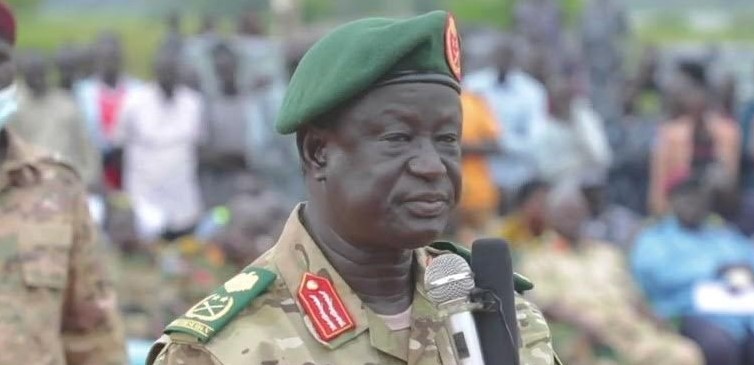South Sudan’s President Salva Kiir summarily dismissed long-serving Director General of the Internal Security Bureau of the National Security Service (NSS) Gen Akol Koor Kuc on Wednesday.
In a decree broadcast on the state-owned South Sudan Broadcasting Corporation (SSBC), President Kiir appointed Akec Tong Aleu as the new Director General of the Internal Security Bureau of NSS.
Prior to his appointment, Aleu was the Undersecretary for Veteran Affairs in the Ministry of Defense and Veteran Affairs. He previously served as Governor of Warrap State and the defunct Tonj State and in state ministerial posts.
Aleu was also promoted to the rank of Lt. Gen. from Major General.
Kuc’s sacking ends 13 years at the helm of South Sudan’s dreaded intelligence service.
Pundits have interpreted the dismissal as indicative of the hidden power struggle among top security officials.
In July 2011, President Kiir issued an order dissolving the National Security and Intelligence, the Special Branch and Public Security, just weeks after the country’s independence.
Subsequently, the President appointed then Brig Gen Kuc as Director General for Internal Security Bureau. NSS is under the law, overseen by the President.
According to several observers, the downfall of Gen Kuc could breathe a new lease of life into the security sector, which has been deadlocked on reforms, even as economic crisis threatens the country’s stability.
In another decree, President Kiir redeployed the Governor of Warrap State, Gen Kuol Muor, to NSS.
The President appointed Kuc as the Governor of Warrap State, but it remains unclear if the former spy chief will accept the new political position.
Gen. Akol’s tenure
Since 2011, the Internal Security Bureau of the National Security Service (NSS) has operated under the supervision of Gen. Akol Koor. Its activities have gone far beyond their original remit, largely unchecked. This has created a vicious cycle in which a highly militarized agency has gained ever more power and wielded it with increasing brutality.
According to reports, South Sudan’s National Security Service stands out as particularly ruthless, secretive, and well-funded. Fear of the NSS is pervasive in the country. Its personnel have been involved in widespread human rights abuses, including kidnapping, torture, and illegal detention.
The NSS has also interfered with civil society and the independent media and detained and silenced those who spoke out against the government.




